
Aug 11, 2017
In the largest functional brain imaging study to date, the Amen Clinics (Newport Beach, CA) compared 46,034 brain SPECT (single photon emission computed tomography) imaging studies provided by nine clinics, quantifying differences between the brains of men and women. The study is published in the Journal of Alzheimer’s Disease.
Lead author, psychiatrist Daniel G. Amen, MD, founder of Amen Clinics, Inc., commented, “This is a very important study to help understand gender-based brain differences. The quantifiable differences we identified between men and women are important for understanding gender-based risk for brain disorders such as Alzheimer’s disease. Using functional neuroimaging tools, such as SPECT, are essential to developing precision medicine brain treatments in the future.” (more…)
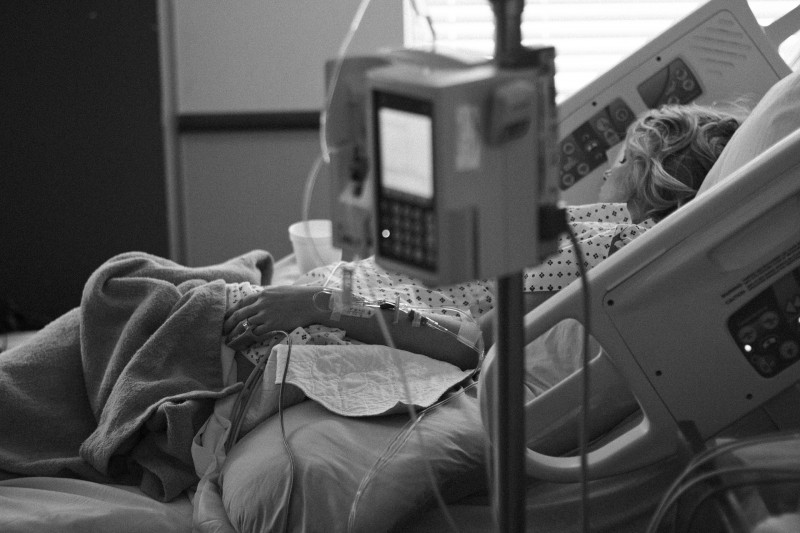
Aug 8, 2017
People who survive a stroke or a mini-stroke without early complications have an increased risk of death, another stroke or heart attack (myocardial infarction) for at least 5 years following the initial stroke, found a new study published in CMAJ (Canadian Medical Association Journal)
“There is a real need to maintain risk reduction strategies, medical support and healthy lifestyle choices over the long-term, even years after a mild initial event,” said senior author Dr. Richard Swartz, a neurologist at Sunnybrook Health Sciences Centre, Toronto, Ontario. (more…)
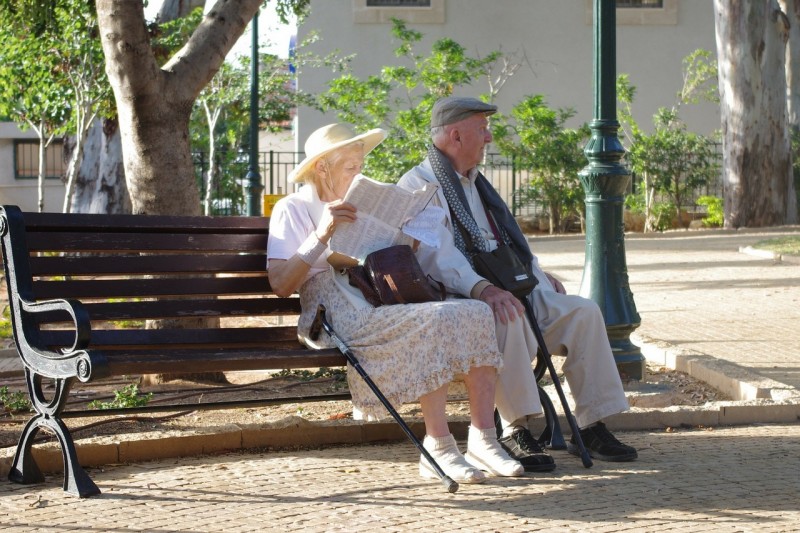
Aug 3, 2017
Is being born in states with high stroke mortality associated with dementia risk in a group of individuals who eventually all lived outside those states?
A new article published by JAMA Neurology reports the results of a study that examined that question in a group of 7,423 members of the integrated health care delivery system Kaiser Permanente Northern California.
A band of states in the southern United States is known as the Stroke Belt because living there has been associated with increased risk of a number of conditions, including high blood pressure, diabetes, stroke and cognitive impairment. (more…)

Jul 26, 2017
Article by Jon Barrick, SAFE President
Published in Oruen – The CNS Journal – Volume 3 Issue 1 – July 2017
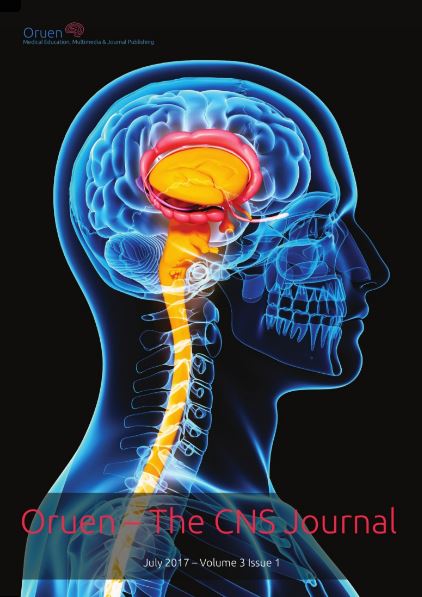
Oruen – The CNS Journal – Volume 3 Issue 1 – July 2017
“Time is brain” is a concept that perfectly encapsulates the need for swift action when stroke strikes. The sooner stroke symptoms are realised, the sooner the person gets the care they need, the greater the chances for survival and life with fewer disabilities.
What happens in Europe is that a person who has a stroke for example in Catalonia, Spain, and a person who has a stroke in Bulgaria will not receive the same care, which influences their chances of survival.
Stroke Alliance for Europe (SAFE) is a non-profit-making organisation that is a coalition currently of 30 Stroke Support Organisations from across Europe. These Stroke Support Organisations (SSO’s) mutual goal is to drive stroke prevention and care up the European and national political agendas, preventing stroke through education, and supporting stroke care and patient centered research. SAFE aims to raise awareness of the major impact stroke has on individuals, and on the health and economy of Europe.
The Burden of Stroke in Europe Report, commissioned by SAFE, conducted by King’s College in London and published in May 2017, has projected that between 2015 and 2035, overall there will be a 34% increase in the total number of stroke events in the EU (from 613,148 in 2015 to 819,771 in 2035). This means that stroke prevention should be a high priority for governments and health care systems. The research findings indicate that stroke is widely undertreated, with the risk factors not being controlled and treated the way they should be.
The Report painted a gloomy picture of the present situation when it comes to stroke and how much we know about the quality and extent of stroke care, which was variable across countries, but also indicated that public awareness campaigns were not regularly occurring. In many European countries people, in general, do not know what causes stroke and how to prevent it. For most of them, stroke is still an act of God, for which mistakenly they believe there is no treatment. Risk factors such as High Blood pressure and high cholesterol, Atrial Fibrillation, diet and lack of exercise can all be combatted.
When it comes to the acute phase, we know that stroke units save lives and improve outcomes, but we don’t have a Europe-wide applied pursuit of the essential elements of stroke unit care. Despite over thirty years of evidence showing the difference stroke units make and despite their inclusion in European and national guidelines, it is estimated that only about 30% of stroke patients receive stroke unit care across Europe. This figure masks startling inequalities between countries, and in particular the East-West divide in stroke unit provision.
Please read the full article here.

Jul 22, 2017
NEWS RELEASE
Saturday, July 22nd is World Brain Day. Organisers of the Together Under the Umbrella campaign are inviting the public to share a picture of themselves on the day, using the hashtag #UnderTheUmbrella, to help raise awareness of brain disorders.
Last year’s World Brain Day saw hundreds of pictures shared around the world – selfies, groups of family and friends, medical professionals and patient groups, all stood under umbrellas in support of brain disorder awareness. A wide variety of disease areas were highlighted in these messages including MS, Parkinsons, headache, mental health, chronic pain, ME and rare diseases.
The campaign is an initiative of the European Federation of Neurological Associations (EFNA), who bring together European umbrella organisations of neurological patient advocacy groups.
The umbrella is used as a symbol of unity by the campaign – bringing the many neurological conditions together. To find out more about the campaign visit www.undertheumbrella.eu and follow @UnderUmbrellaEU on social media.
We’re #UnderTheUmbrella for #WorldBrainDay! Join us to raise
#BrainDisorder & #[InsertYourDiseaseArea] awareness
About Together Under the Umbrella
Developed in line with a strategy to advocate for support of patient-led campaigns to educate, eradicate stigma and raise awareness of neurological and chronic pain disorders, Together Under the Umbrella aims:
• To raise awareness of the prevalence of neurological disorders
• To educate society on the range of disorders which are ‘neurological’
• To ‘brand the brain’ by grouping these disorders under a common symbol to create a unified and identifiable
‘brand’
• To provide a platform for European and national patient neurology groups to promote and profile their work
in the areas of advocacy, communications and fundraising using the hashtag #UnderTheUmbrella
About Neurological Disorders
• Each year, approximately 1 in 3 Europeans are affected by a brain disorder and 1 in 5 by chronic pain.
• This includes 153 million people suffering migraine or other disabling headaches, 200 million musculoskeletal
disorders, 100 million people experiencing chronic pain, 8 million living with stroke, 6 million with dementia
and 4 million with traumatic brain injury.
• The World Health Organisation estimates that brain disorders cause one-third of the burden of all diseases.
• €295 billion a year is spent on healthcare for neurological and brain disorders, making them ‘the number one
economic challenge for European health care, now and in the future’.
About the European Federation of Neurological Associations (EFNA):
The European Federation of Neurological Associations (EFNA) brings together European umbrella organisations of neurological patient advocacy groups, to work with other associations in the field of neurology, including the European Academy of Neurology (EAN), in what has been termed a ‘Partnership for Progress’.
EFNA’s aims are:
• To improve the quality of life of people with neurological disorders, their families and carers
• To promote rapid and accurate diagnosis, appropriate treatment, rehabilitation and care for people with
neurological illnesses
• To promote better access to information which is accurate and easy to understand
• To promote public awareness and understanding of neurological conditions
• To eliminate prejudice and stigma associated with neurological disorders
• To increase priority given to neurology by policy and decision makers and by health care providers.
EFNA currently has a membership of 18 associations, based in countries Europe-wide.

Jul 18, 2017
During the period between 31st May and 5th July 2017, SAFE organised three Regional Conferences. These conferences were held in Lisbon, Riga and Berlin, having representatives from 5 country clusters, with 29 stroke support organisations from 26 European countries.
All three conferences were fully supported by SAFE’s long-term industry partner, pharmaceutical company Boehringer Ingelheim.
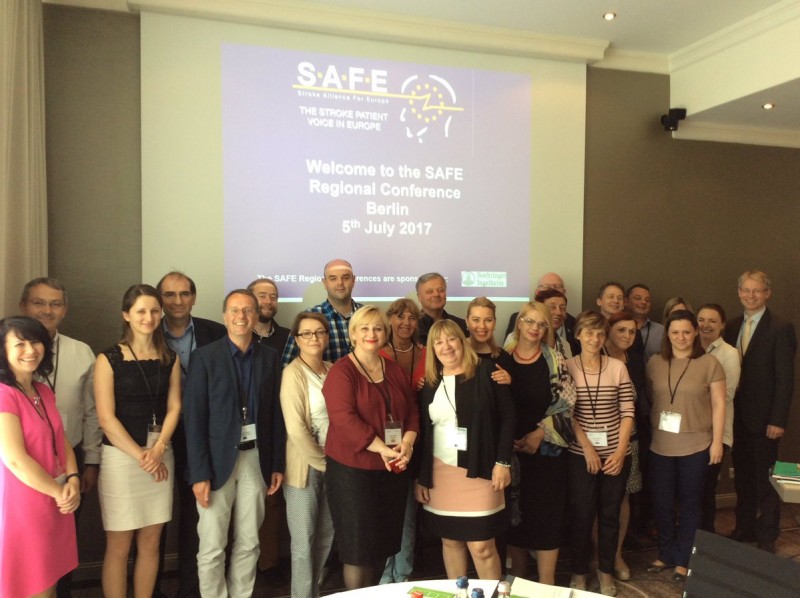
SAFE Regional Conference, Berlin, Germany
(more…)
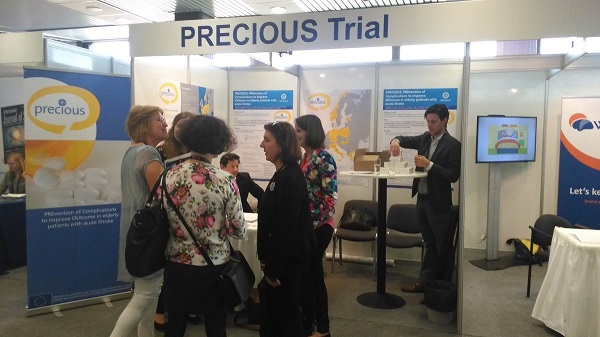
Jul 17, 2017
After having taken many regulatory hurdles, the trial PRECIOUS is now coming up to speed!
PRECIOUS has full approval in Estonia, Germany, Hungary, Italy, Norway, the Netherlands, and the UK. Poland and Greece are almost there! A total number of 16 sites across Europe have been initiated and we expect this number to increase to 80 by the end of this year. (more…)

Jul 14, 2017
Your cognitive capacity is significantly reduced when your smartphone is within reach — even if it’s off. That’s the takeaway finding from a new study from the McCombs School of Business at The University of Texas at Austin.
McCombs Assistant Professor Adrian Ward and co-authors conducted experiments with nearly 800 smartphone users in an attempt to measure, for the first time, how well people can complete tasks when they have their smartphones nearby even when they’re not using them. (more…)
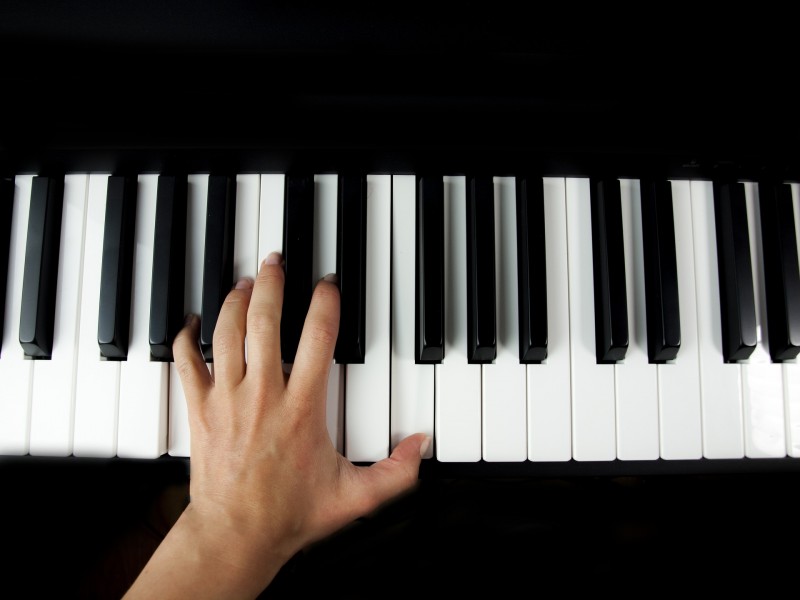
Jul 13, 2017
Using musical cues to learn a physical task significantly develops an important part of the brain, according to a new study.
People who practiced a basic movement task to music showed increased structural connectivity between the regions of the brain that process sound and control movement.
The findings focus on white matter pathways — the wiring that enables brain cells to communicate with each other. (more…)
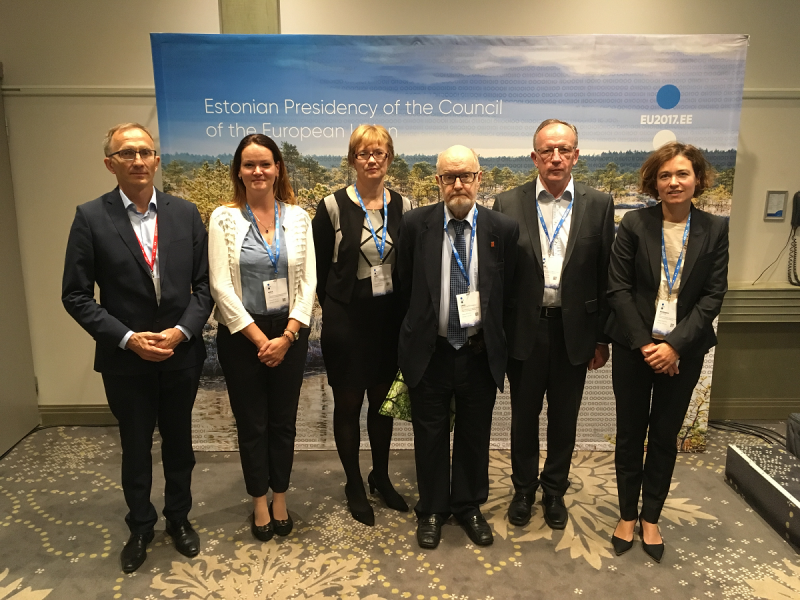
Jul 7, 2017
The Experts Statement Document
Tallinn, Estonia, July, 6 2017
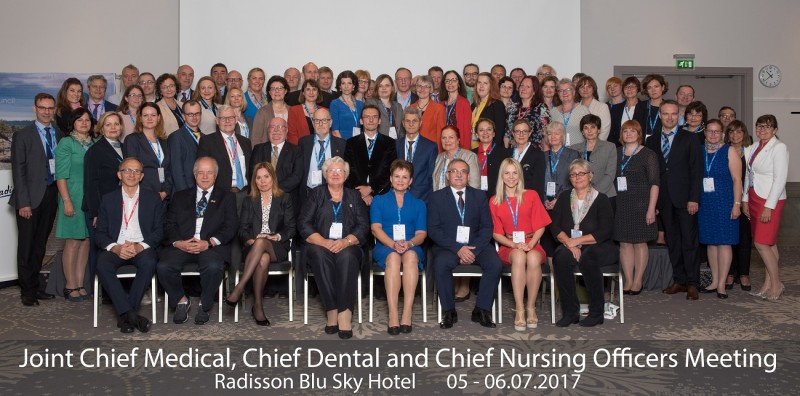
Inequalities in stroke risk and stroke provision across Europe should be of great concern to European policy makers, especially considering the predicted increase in the number of people having a stroke in the future. Stroke is a leading cause of disability and mortality among adults.
Stroke is the second most common cause of death and the third most common cause of loss of disability-adjusted life years (DALYs) worldwide. Two types of stroke can be distinguished: 80% ischaemic, most often caused by an occlusion of a cerebral artery. The remaining 20% are haemorrhagic, most often caused by a rupture of an artery. Every year, 1,3 million Europeans have a first stroke. 20 – 35% of these patients succumb within the first month, and around one third remain dependent on the help of others. Even in patients who survive a stroke with minor disabilities, quality of life is often substantially and irreversibly impaired.

From left to the right: Üllar Kaljumäe, Chief Medical Officer of Estonia; Jelena Misita, SAFE; Prof. Janika Kõrv, University of Tartu, Estonia; Prof. Kaste Markku, University of Helsinki, Finland; Prof. Toomas Asser, University of Tartu, Estonia; Vinciane Quoidbach, EBC
Across Europe, stroke accounts over 1 million deaths each year. Most of these victims are elderly patients. However, death rates vary substantially between countries and are more than three times higher in central and eastern Europe than in northern, southern and western Europe.10 Although early stroke mortality rates have decreased over the past two decades, the burden of stroke in terms of the absolute number of people affected, related deaths and DALYs lost are increasing, with most of the burden in low-income and middle-income European countries. The quality of stroke care varies widely throughout the EU, mirroring death rates ranging from approximately 6% to nearly 20%. Other disparities include gender imbalances and the number of hospital discharges and lengths of stay for patients treated for CVD. Across Europe, it has been estimated that only 30% of patients are treated in a Stroke Unit, which means that 70% of patients with acute stroke are withheld care that is of proven benefit.
There is a need to reduce the burden of stroke throughout the EU through better evidenced based prevention and care.
In 2006, co-sponsored by the WHO Regional Office for Europe, the second Helsingborg Declaration set new targets for stroke management and care: “continuum of care from organized stroke units in the acute phase to appropriate rehabilitation and secondary prevention measures.” The specific goals for 2015 had been that: > 85% of patients should survive the first month after stroke, that 70% of survivors should be independent at 3 months and that all patients with acute stroke, potentially eligible for acute, specific treatment, should be transferred to hospitals with adequate capacity and expertise to administer treatments defined as a Stroke Unit or Stroke dedicated areas. A 3rd European Action plan is currently drafted to verify the achievement of these goals and set goals for 2030.
Effective stroke care planning and adequate resource allocation across Europe are crucial to address primary and secondary prevention and timely intervention as well as equal access and quality of care for all patients. Indeed, care for stroke patients begins before a stroke has happened with the identification of people at risk of stroke, modification of lifestyle patterns, and treatment of vascular risk factors in the primary care setting. Stroke care strategies should then focus on optimal treatment of acute stroke in an acute stroke unit and on avoiding further vascular events, delivered through a comprehensive stroke service quality standards. Every step of the patient care pathway from symptom onset to the start of treatment within the hospital should be optimized in order to save time and to offer all medical opportunities including thrombolysis and thrombectomy for improved survival rates, reduced complications and disability. During and after the acute phase, targeted rehabilitation is needed for better recovery and quality of life.
Our aim is to prevent stroke from happening in the first place and improve the quality of life of the stroke patients and their carers. To achieve these goals, every national stakeholder when assessing, planning and implementing their national stroke strategy should consider the following recommendations:
Primary and secondary stroke prevention is crucial and should be available to all of the people at risk.
Primary care is increasingly taking on a greater role in both, the assessment and the long-term care of stroke patients – in order to ensure an efficient collaboration between primary care physicians and specialist care, incentives should be created and expertise should be built in order to improve long-term outcome of stroke patients.
The Stroke Units network needs to be established in all European countries to ensure fast admission of all stroke patients. These Stroke Units have to be certified by qualified national authorities either the international professional bodies. A Comprehensive Stroke Centre needs to be established in order to foster access to reperfusion therapies. Furthermore, specific clinical services and targeted training programmes need to be developed.
Access to evidenced-based treatments of acute stroke and prevention strategies need to be guaranteed for all patients.
Effective evidence-based treatments for acute stroke care and for secondary prevention shall be available to all patients.
National evaluations based on audits or quality registries are needed to provide feedback to medical professionals and national decision makers for the implementation of evidence-based medicine in clinical practice.
Access to timely and personalised rehabilitation should be made available to all stroke patients, starting from acute Stroke Units in a continuum of care to rehabilitation service based on patient needs, including early supported discharge, comprehensive inpatient rehabilitation unit and long-term facilities for patients having stroke sequels.
Clinical quality registries are essential to analyze the development of stroke outcome, using the data to provide feedback to healthcare professionals and converge evidence to decision makers.
Stroke research is grossly underfunded. Funding for stroke research needs to be increased proportionally to the burden of disease.
The psychological and emotional impacts of stroke are very often ignored. Therefore, we call on all European countries to consider implementing patient psychological and behavioral support programs after stroke, ensuring a holistic approach to tackling “life after stroke” issues.
Stroke support organisations have important role in helping patients and their caregivers in the life after stroke and should be recognized and supported by medical professionals and governmental bodies in building up their capacity.
Collaboration between health care professional organisations and patient stroke support organisations needs to be recognized by the EU and National Health authorities leading to the equal access to stroke prevention, management, rehabilitation and improved quality of life after stroke.
This document was approved by stroke experts SAFE, ESO and EBC at Joint Meeting the Chief Medical, Chief Dental and Chief Nursing Officers.
EUROPEAN STROKE ORGANISATION
Urs Fischer MD, MSc
Extraordinarius for Acute Neurology and Stroke
Co-Chairman Stroke Center Bern
Co-Director Clinical Trial Unit Bern
University of Bern, Switzerland
Secretary General European Stroke Organisation
Markku Kaste MD, PhD, FESO, FAHA, FANA
Emeritu Professor of Neurology
University of Helsinki, Finland
Past Chairman of the Department of Neurology
Helsinki University Central Hospital, Finland
Janika Kõrv MD, PhD, FESO
Associate Professor,
Department of Neurology and Neurosurgery,
University of Tartu, Estonia
STROKE ALLIANCE FOR EUROPE
Jelena Misita, MA, MBA
SAFE Awareness and Advocacy Manager for Europe
London, United Kingdom
EUROPEAN BRAIN COUNCIL
Vinciane Quoidbach
Research Project Manager
Public Health and Policy – Value of Treatment
Brussels, Belgium
Please see the signed version of this document here.














